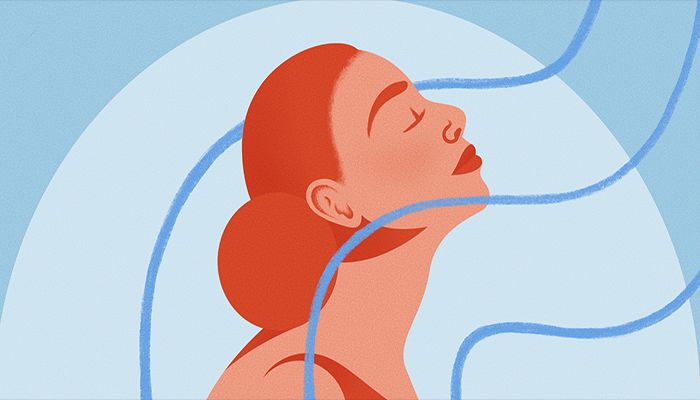
Desk Report
Publish: 22 Jun 2021, 09:12 pm

Breathing plays a vital role in how you think, feel, rest and recover, and it even impacts your posture and movement. || Photo: Collected
Breath is a powerful force — without it, there is no life.
This first article sets the foundation by opening your eyes to the innate power you possess through your breath. Next, I will cover breathing's impact on posture, movement and chronic pain. In the third installment, I teach you ways to leverage your breathing for better sleep and overall recovery. And, lastly, you'll learn how to train yourself to breathe better for stress management and enhanced focus. Throughout the series, you will also find supporting commentary and advice from some of the athletes and coaches I work within professional sports.
But the act of breathing — the movement pattern that powers respiration — is actually a voluntary movement that you can control at will. And because of respiration's paramount role in keeping you alive, the quality of your breathing can impact virtually all other systems of the body, which means YOU have the power to actively use your breathing to positively affect your health and wellness on many levels.
When you understand the power of your breathing, you can leverage a slower, more measured breathing pattern to tap the parasympathetic "rest and restore" aspect of your nervous system to help you calm down, increase your concentration, go to sleep, and more.
During games, the commentators would often make similar statements about Thomas' ability to anticipate puck position, saying it was like he had a superpower.
Judge and I began incorporating breathing drills into his training during the off-season. He said, "At first, I couldn't really understand how something I already do naturally could affect my performance and everyday life. I thought to myself, 'I breathe all day, how can five to 10 minutes of focused breathing make a difference?' Boy, was I wrong. I noticed a change and a feeling of relief instantly after the first couple of warmups and sessions. Not only did I feel freedom in my torso and hips -- I almost felt taller, which might be hard to believe, as I am already 6'7".
Consequently, Judge said of his breathing practice: "It has changed the way I prepare each day and each game I play."
Less-than-optimal breathing doesn't just adversely impact how you think and feel — because it's a movement pattern — it impacts your posture and mobility and can even contribute to chronic pain, particularly in your back, neck and shoulders. That's because your diaphragm, your primary breathing muscle, is also a fundamental postural and core muscle. And that's why, as Judge referenced in his experience, training your breathing can significantly enhance posture, movement and pain relief — but we'll cover that in detail in the next article in the series.
Breathing is fundamental for life, so in situations that compromise optimal breathing, your body will figure out an adaptive pattern to take in oxygen to keep you alive. In most cases, that ends up being the upper chest-oriented, shallow pattern I mentioned above. In the context of those situations, that breathing pattern isn't faulty; it's a good thing, like an adaptive emergency mechanism.
Source: CNN
Subscribe Shampratik Deshkal Youtube Channel
Topic : Breath Superpower
© 2024 Shampratik Deshkal All Rights Reserved. Design & Developed By Root Soft Bangladesh